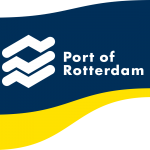NautilusLog, a leading maritime technology company based in Hamburg, proudly announces the release of ISO 4891: Ships and Marine Technology – Interoperability of Smart Applications for Ships, an innovative international standard that will transform the interoperability of smart applications onboard vessels.
The standard was developed in collaboration with the German national organization for standardization (DIN) and the Japan Ship Technology Research Association (JSTRA), with Otto Klemke, CEO of NautilusLog, serving as the Project Lead.
What is ISO 4891?
ISO 4891 provides operational and performance requirements for smart applications on board ships. It addresses a key challenge in maritime digitalization—interoperability—by creating a foundation that allows maritime technology providers to integrate their solutions efficiently, leading to safer and more reliable ship operations.
It is applicable to documentation, process management, connection and data collection through human-machine interfaces, IoT technologies and related systems.
“ISO 4891 represents a major advancement in the digital transformation of the maritime industry,” said Otto Klemke, CEO of NautilusLog and project lead for ISO 4891. “By enabling seamless communication between smart applications, ship operators can achieve higher operational efficiency, reduce downtime, and improve safety. This standard will unlock real-time data sharing and drive innovative business models in maritime operations.”
The Importance of Interoperability
Interoperability is central to ISO 4891, allowing smart applications on ships to exchange data without compromising functionality or certification. For instance, third-party applications can now interact with systems such as the Electronic Record Book (ERB), provided they are ISO 4891-compliant. This interoperability accelerates the integration of advanced technologies, including automation, predictive maintenance, and real-time data exchange, driving the digitalization of the maritime sector.
Why ISO 4891 Matters to the Maritime Industry
As the maritime industry adopts more smart technologies, ISO 4891 ensures these technologies can communicate effectively, enhancing decision-making and operational performance. By following ISO 4891, organizations can demonstrate a commitment to innovation and efficiency, giving them a competitive edge.
“The maritime sector is evolving towards smarter, more sustainable operations,” added Klemke. “ISO 4891 lays the groundwork for these innovations, ensuring that new technologies can work in harmony and setting the stage for smarter, safer shipping practices.”
Real-world applications
Some of the scenarios where the standard can make a significant impact include:
– Smart Logbook: A smart logbook onboard ships that can automatically record essential data. This data can be easily shared with other systems, helping crews stay compliant with regulations and cutting down on paperwork.
– AI-Powered Carbon Reduction Tool: An AI tool can connect to ship systems and use logbook data to analyse emissions. It could give real-time tips to crews on how to cut fuel use, seamlessly fitting into daily operations without extra work.
– Future Ship-Port Coordination: In the future, ships and ports could have smart applications that work together. For example, a ship’s system could coordinate with port systems to predict the best time to dock, reducing fuel use and emissions through better timing.
Certification and Compliance
While ISO 4891 certification is optional, it offers a valuable mark of quality. Certified organizations can show that their systems adhere to the highest standards of interoperability, distinguishing themselves in a competitive market. NautilusLog’s suite of products, including its Smart Logbook, is fully compliant with ISO 4891, ensuring seamless integration of smart applications across fleets and supporting the broader adoption of globally recognized standards.
Preparing for ISO 4891 and Its Impact on Existing Systems
Organizations with existing onboard systems may need updates to achieve ISO 4891 compliance. Shipowners and operators are encouraged to review their systems and collaborate with technology providers like NautilusLog to ensure compatibility with the new standard. Early preparation, guided by expert consultation and support from NautilusLog, can ensure a smooth transition and maximize the benefits of adopting ISO 4891-compliant technologies.
Looking to the Future
ISO 4891 is expected to have a lasting impact on maritime technology, nurturing innovation and standardization in smart shipping. As with other ISO standards, ISO 4891 will be periodically reviewed and updated to remain aligned with technological advancements and industry needs.
Founded in 2017, NautilusLog is a maritime technology company headquartered in Hamburg, Germany. We aim to digitalize the maritime industry by replacing traditional paperwork with innovative digital solutions. Our software solutions enable the industry to be collaborative, go digital, and to stay compliant with ESG regulations. NautilusLog products are used in 3,000+ vessels across 130+ shipping lines in more than 30 countries. Our clientele includes diverse industry leaders including MSC, SGS, Eurofins, Harren Group, Bernhard Schulte Shipmanagement, and many more.
Source: NautilusLog






